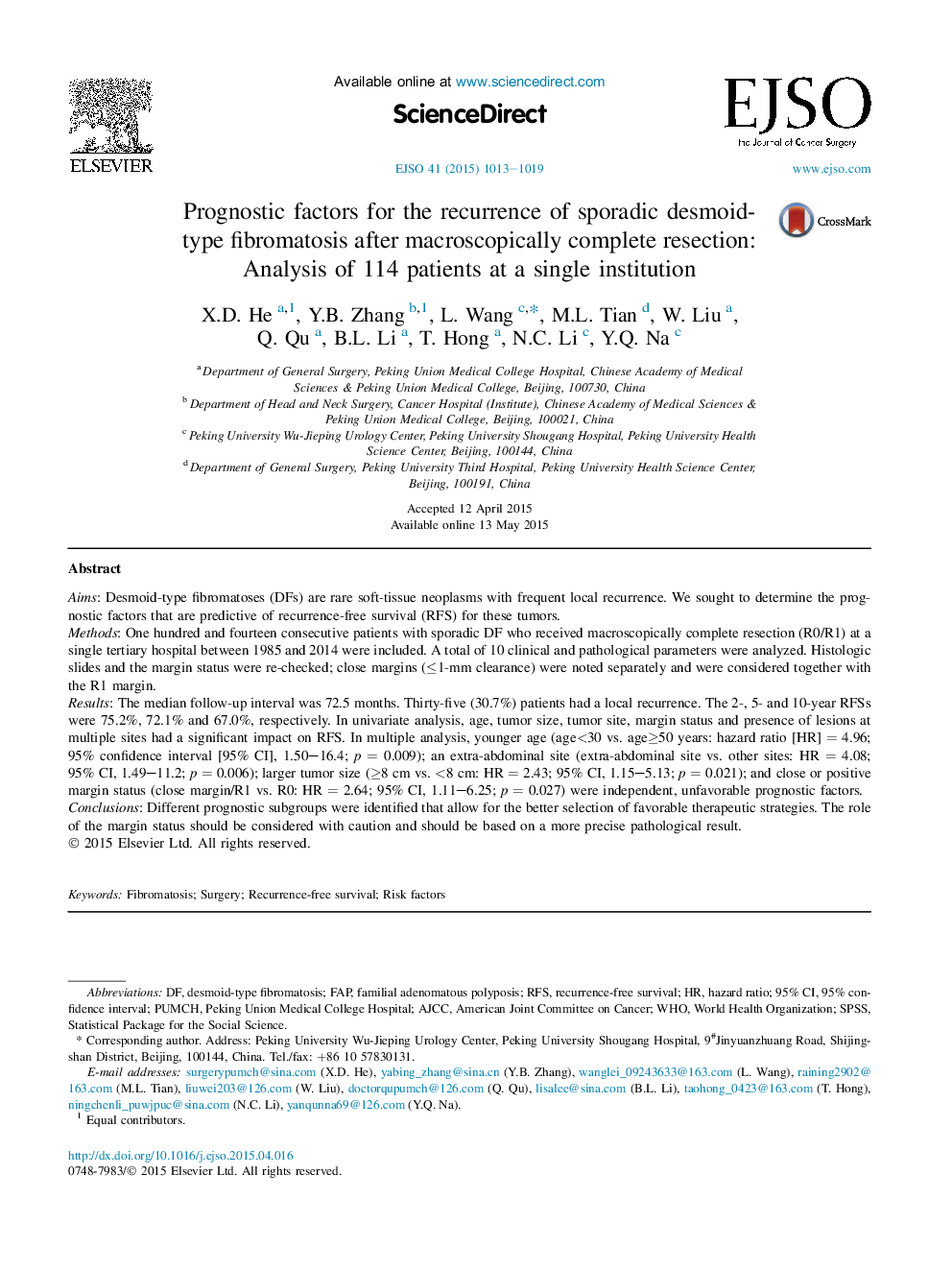| Article ID | Journal | Published Year | Pages | File Type |
|---|---|---|---|---|
| 3984616 | European Journal of Surgical Oncology (EJSO) | 2015 | 7 Pages |
AimsDesmoid-type fibromatoses (DFs) are rare soft-tissue neoplasms with frequent local recurrence. We sought to determine the prognostic factors that are predictive of recurrence-free survival (RFS) for these tumors.MethodsOne hundred and fourteen consecutive patients with sporadic DF who received macroscopically complete resection (R0/R1) at a single tertiary hospital between 1985 and 2014 were included. A total of 10 clinical and pathological parameters were analyzed. Histologic slides and the margin status were re-checked; close margins (≤1-mm clearance) were noted separately and were considered together with the R1 margin.ResultsThe median follow-up interval was 72.5 months. Thirty-five (30.7%) patients had a local recurrence. The 2-, 5- and 10-year RFSs were 75.2%, 72.1% and 67.0%, respectively. In univariate analysis, age, tumor size, tumor site, margin status and presence of lesions at multiple sites had a significant impact on RFS. In multiple analysis, younger age (age<30 vs. age≥50 years: hazard ratio [HR] = 4.96; 95% confidence interval [95% CI], 1.50–16.4; p = 0.009); an extra-abdominal site (extra-abdominal site vs. other sites: HR = 4.08; 95% CI, 1.49–11.2; p = 0.006); larger tumor size (≥8 cm vs. <8 cm: HR = 2.43; 95% CI, 1.15–5.13; p = 0.021); and close or positive margin status (close margin/R1 vs. R0: HR = 2.64; 95% CI, 1.11–6.25; p = 0.027) were independent, unfavorable prognostic factors.ConclusionsDifferent prognostic subgroups were identified that allow for the better selection of favorable therapeutic strategies. The role of the margin status should be considered with caution and should be based on a more precise pathological result.
